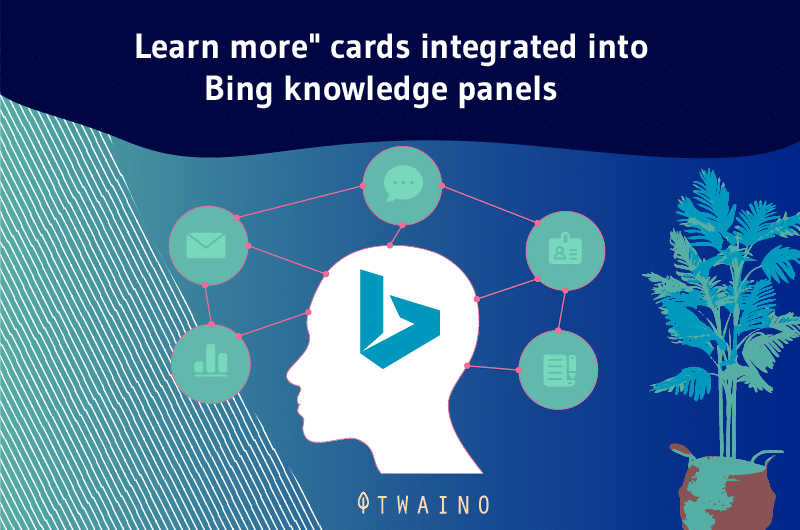Bing, Microsoft’s search engine, is currently experimenting with a feature called “Learn More” cards. These appear below the knowledge panel in search results.
They are designed to provide users with additional information on a particular topic and are presented in the form of a carousel.
In this article, we’ll look at why and how the “Bing Knowledge Panels” integrate “Learn More” cards to provide detailed information on various entities.
What are Knowledge Panels?
Knowledge panels are an important feature in search engines like Bing and Google. They display essential information about a search query directly on the search results page.
When you perform a search on Bing, you can discover these Knowledge Panels, which look like little information sheets. They provide essential data on the entity you’re looking for, such as its description, location, contact details and much more.
This information is generally extracted from authoritative sources and is designed to give users a quick overview of the subject they are looking for.
How “Learn more” cards work
In search results, Bing introduces what are known as “Learn More” cards. These cards displayed under Bing’s Knowledge Panels are intended to provide users with additional information on a specific topic or search result.
They work as a carousel of cards, where each card represents a link to a third-party source of relevant information on the search topic.
When users click on a card, they are directed to the corresponding website, where they can access deeper details and different perspectives on the topic.
This could include additional information on:
- the biography of a personality ;
- a restaurant’s opening hours;
- the characteristics of a product..
Or direct links to maps to help you find a place quickly.
These third-party sources can include news articles, blog posts or other informative resources.
Shameem shared two screenshots on X that show the version of Bing without and with these maps:
<blockquote class=”twitter-tweet”><p lang=”en” dir=”ltr”>here is the previous version <a href=”https://t.co/1LFPgyEWTI”>pic.twitter.com/1LFPgyEWTI</a></p>— Shameem Adhikarath (@shemiadhikarath) <a href=”https://twitter.com/shemiadhikarath/status/1704802287238209787?ref_src=twsrc^tfw”>September 21, 2023</a></blockquote> <script async src=”https://platform.twitter.com/widgets.js” charset=”utf-8″></script>
This feature enhances Bing’s usability by allowing users to explore various sources of information without having to perform new searches.
It also facilitates the discovery of reliable resources and enriches the quality of search results.
Enriching the Search Experience
Learn More” cards have a significant impact on users’ search experience. They provide access to a variety of resources from third-party websites, broadening the scope of the search.
Users can obtain more detailed information, diverse opinions and additional data, all from the Bing results page.
This feature is particularly useful for academic or professional research, or simply for those who wish to deepen their understanding of a given subject.
It makes Bing a more powerful search tool for online content exploration.
Impact on Discovery and Learning
Bing’s “Learn More” cards open up new opportunities for discovery and learning.
Not only can users access additional information, they can also discover sources they might not otherwise have found. This helps to broaden knowledge and encourages active research.
Whether for students, professionals or information-seeking enthusiasts, this feature makes Bing even more valuable as a research tool. It provides fast, convenient access to rich online information.
Learn more” cards in test phase
It should be noted that this feature is still in the testing phase, which means it may not be available to all users or for all search queries.
Bing is probably evaluating user feedback and the effectiveness of these “learn more” cards to determine whether they should roll them out more widely.
In a nutshell
In conclusion, this feature demonstrates Bing’s commitment to providing users with comprehensive and diverse information for their queries. This can go a long way towards improving the search experience on the search engine.



